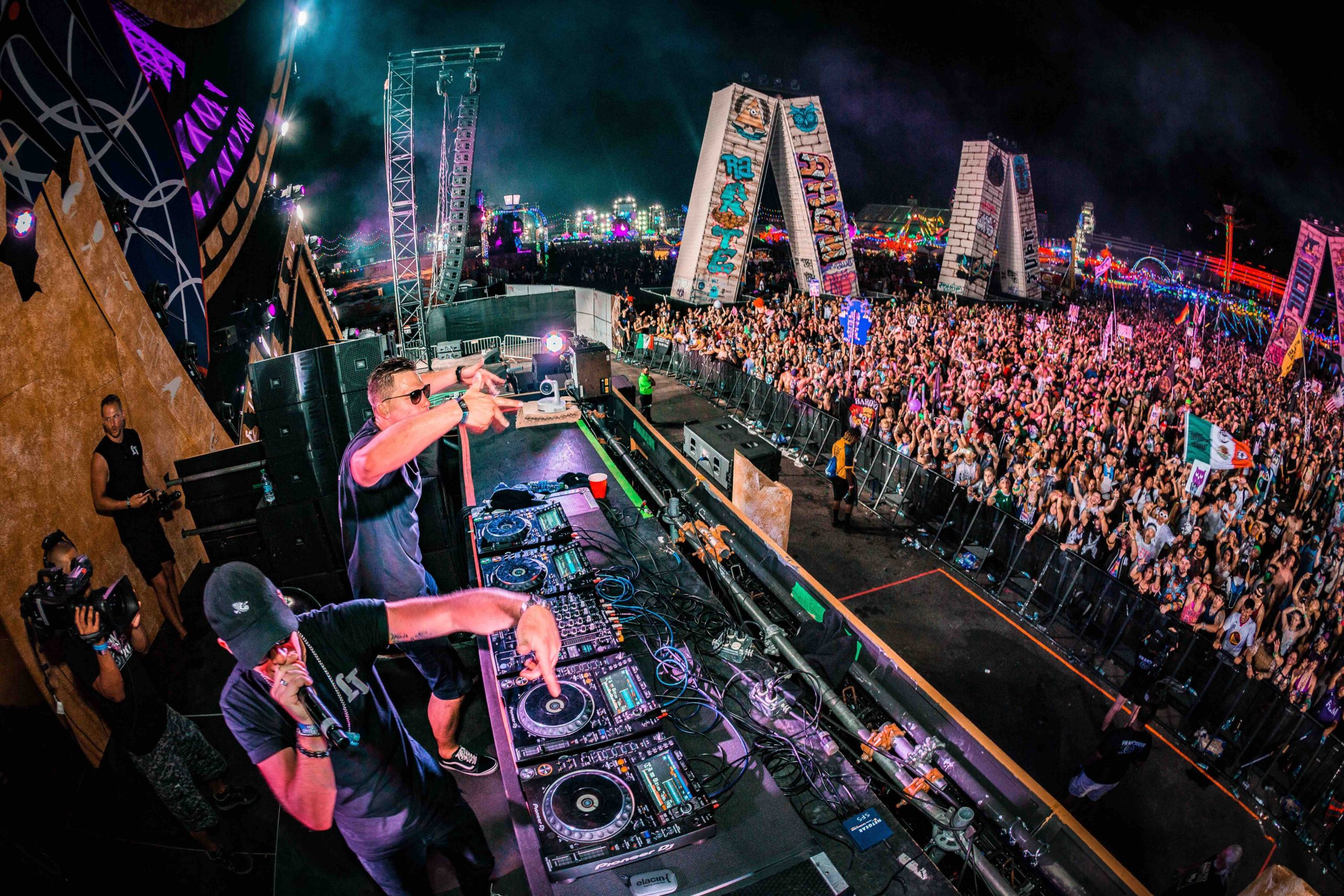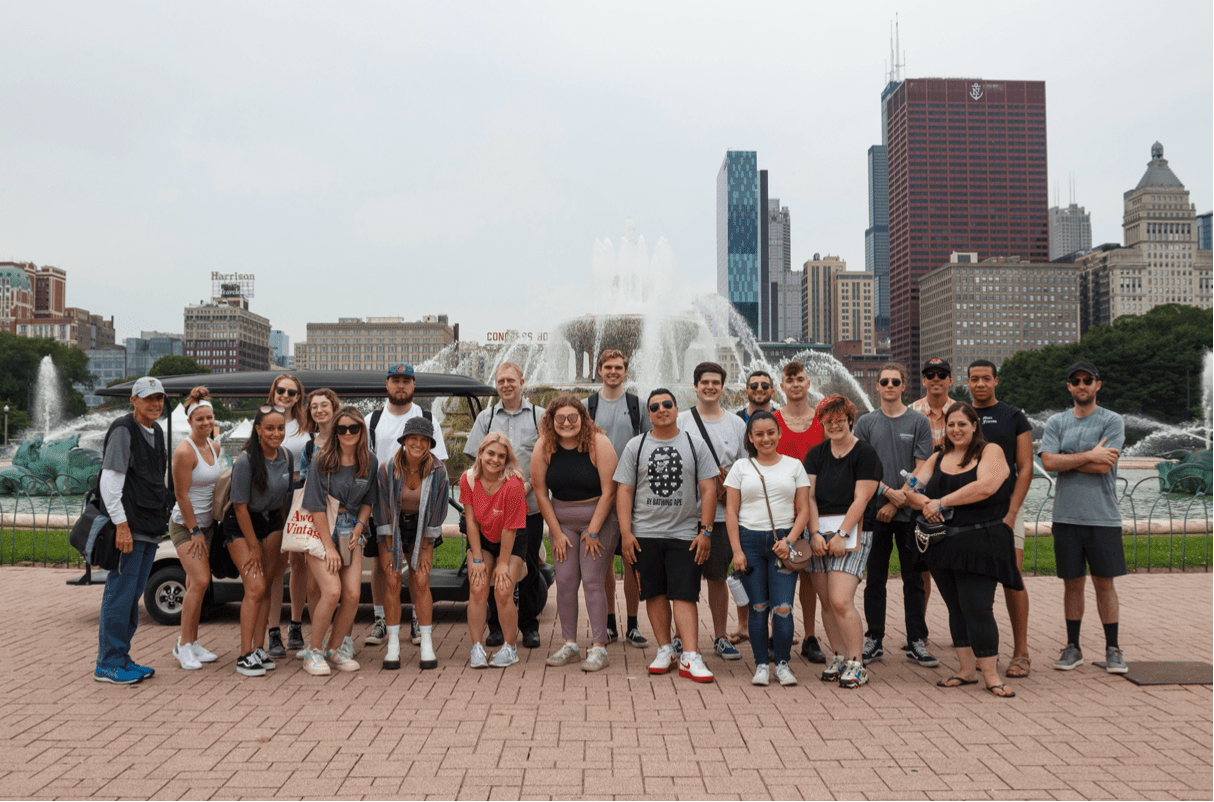Breaking Down Doors to Breaking Records: How to Become an Off-the-Charts Music Industry Professional
Published on October 26, 2021, at 11:15 a.m.
by Megan Murphy.
Bass resonating through an exuberant crowd surrounding an artist on a concert stage creates a wondrous feeling unmatched by any other. This feat of unifying fans during an artist’s performance is not possible without the help of music industry professionals.
Jeff McClusky, founder and CEO of Jeff McClusky & Associates (JMA), has had a career in the music promotion business for the past 40 years. His company is built on relationships and mutually beneficial partnerships between artists, labels, radio stations and major streaming services, he said. JMA serves the music community by curating these experiences that connect artists and fans.
“Branding an artist is branding a creative powerhouse,” McClusky said, and launching and developing an artist is the process of building that brand. He and other music industry insiders, who strive to assist students and prospective young professionals, shared the elements of cultivating meaningful relationships, networking skills, and opportunities to foster industry connections.

Patience and persistence
Music is a very competitive industry to break into, and most public relations students seeking a role in the field struggle to find initial contacts.
Hallie Cross, head of campaign marketing strategy at Warner Music Group, did a lot of “knocking down doors” to break into the industry. After five years, “patience and persistence [paid] off,” she said. Cross further encouraged attending industry events and “getting as much experience as you can.”
The best way for a college student to start building music industry relationships is “internships … hands down,” affirmed Bridget Herrmann, regional manager for radio and streaming at Warner Music Nashville.
“Internships are the best way to get your foot in the door to not only learn, but also impress people who will later vouch for you and help you get a job,” said Herrmann. Music industry internships provide hands-on experience that will set prospective candidates up for future success.
It’s not about who you know, but who knows you
The ability to form meaningful relationships and make lasting impressions within the industry is just as important as connecting and promoting artists to fans. “Like I always say, it’s not about who you know, but who knows you,” Herrmann explained. “If you’re working really hard for somebody — that’s going to rise above and people are going to notice.” Once a student successfully lands an internship, the focus shifts to building a network within the industry.

“One thing that we have at my office is the five best friends theory,” McClusky said. “If you do a good job for someone, if you build a good relationship with them, there are probably five people you can ask on the way that will say good things about you.” Quality relationships create a more authentic and credible network. “You can get a few accolades with 50 friends, but you get a lot more with five best friends,” McClusky noted.
Listen, acknowledge and say “thank you”
McClusky attributed listening and recognizing accomplishments as essential networking skills that helped lead him to success. “The mantra is to study your business, be a good listener, say ‘thank you’ a lot and send follow-up notes,“ he advised.
“Do your homework,” McClusky added. “Paying very close attention to what others in the industry are doing and having a clear understanding of their business increases the chances of making them a part of your team.”

He stressed the importance of acknowledging when clients or customers earn recognition. “When the Grammys or any other music awards take place, I will always send the manager and the label president a congratulatory email. Always. For every single one,” McClusky said. As an example, he shared a story about how a congratulatory email allowed him to build a relationship with the president of Universal Music Group in the United Kingdom. His acknowledgments led him to successfully work with easy life, a hip-hop influenced band that incorporates musical genres of indie and alternative, he said.
Communicate calmly, coolly and creatively
McClusky said writing and communication skills are “critical” for students to master when working in the industry. According to PRSA, strong writing translates to media results. PR students who develop these skills have an advantage. McClusky warned that lacking these skills “will come back to haunt you.”
Cross described the music industry as very laid back, yet fast-paced at the same time. She emphasized the importance of “keeping your cool.”
“When I’m interviewing candidates, I look at how well they can work under pressure,” Cross stated. The best candidates work with a “calm, cool, collected demeanor but also know how to pitch ideas and bring innovation to the table,” she said.
Herrmann noted it is always important to be able to think creatively in this environment, and “having these wild, creative-thinking skills is what sets you apart.” A strong pitch will stand out above all else.
“You have to be able to think outside the box and pitch your ideas in a way that is super clear,” said Cross. She added that students entering the industry should “elevate their fresh and relevant perspective and tap into their own experience as a music fan.”
Off-the-charts experiences and resources
The evolution of the music industry has given students a plethora of resources to propel them to top careers in the industry.
McClusky runs internship programs across the country and has had several interns advance to executive positions at major record labels. His programs include the WeLaunch internship program, where students and interns participate in Lollapalooza University in Chicago and Bonnaroo University in Nashville. Students have six weeks of classes where they work with industry executives and artists — all leading up to a week on-site at these music festivals. “It’s an off-the-charts, great experience,” said McClusky.

As part of a partnership with universities across the country, McClusky teaches classes featuring topics such as management, starting a record label and building an artist’s brand. At this point in his career, he strives to help students advance in the music industry by teaching them his company’s skillset “the JMA way.”
According to its website, Warner Music U is a selective program for college students dedicated to creating “fun and captivating experiences” to connect them with others “at the forefront” of introducing new music and artists. The team of selected students has opportunities to create custom content, distribute merchandise packages and more. Cross said the “reps serve as brand ambassadors for the Warner Music Group roster by promoting our artists on campus and to their extended network of social followers.”

To secure and be successful in these positions, McClusky recommended reading books such as music industry leader Emily White’s Interning 101 to learn how to be a good intern and further build a sustainable career in the music industry. He also said Billboard Magazine’s annual “Next Chapter Careers in the Music Industry” is another resource for discovering vital entry-level positions.
According to Herrmann, the best entry-level positions contain “two keywords — assistant and coordinator.” Careers with these descriptors provide enriching experiences to start off strong and climb the ladder to success, she said.
Cross, Herrmann and McClusky strive to further engage students in the community. Further, all three music industry professionals help build students’ networks and provide them with skills for success. By mastering these professional skills and taking advantage of internship opportunities, ambitious college graduates can continue to propel musicians to successful careers. As McClusky said, “the artist’s brand is their expression of their art that we mold and nurture to present to the public,” and these brand-building industry professionals curate music artists’ shared human experiences.




